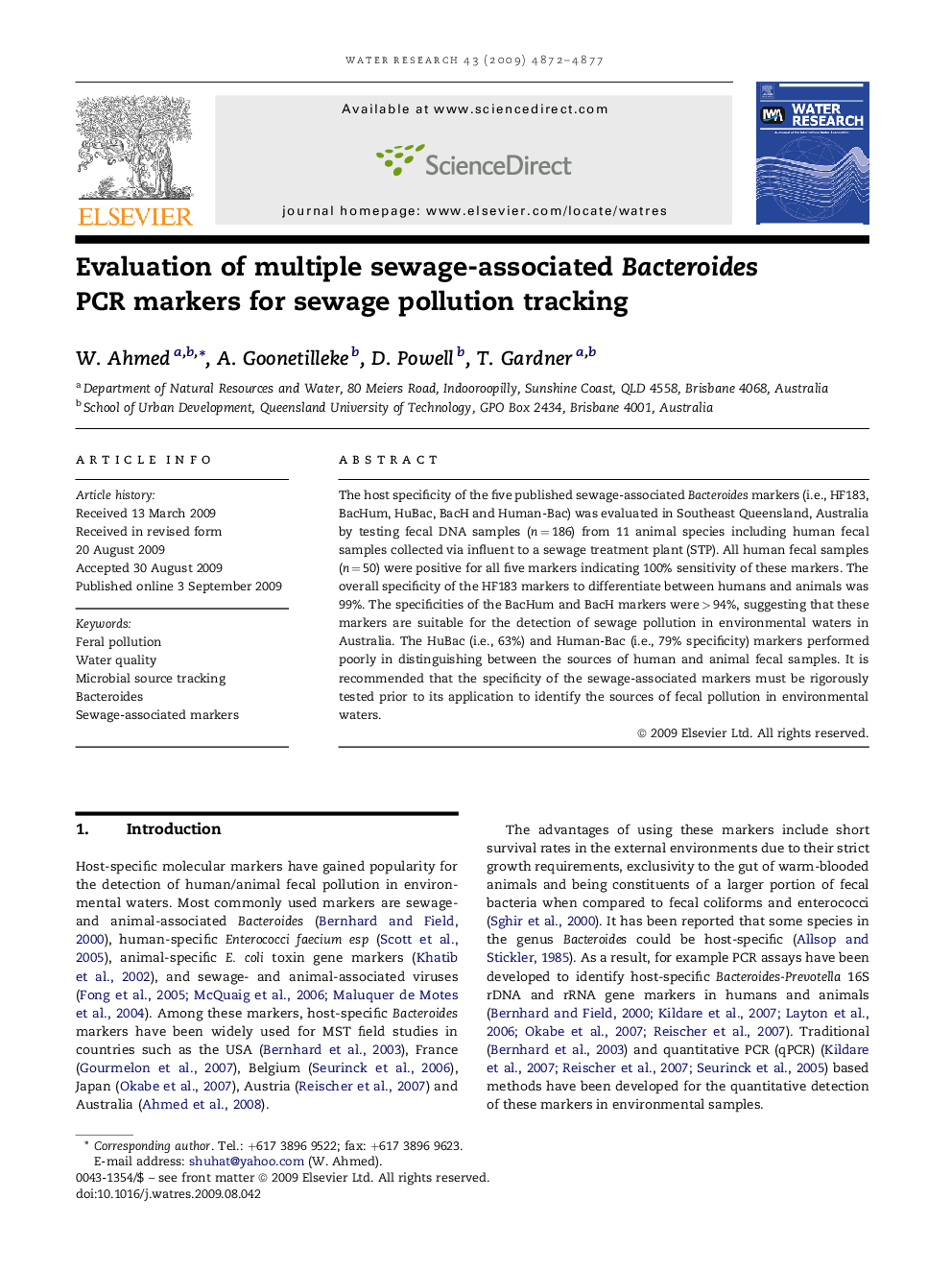| Article ID | Journal | Published Year | Pages | File Type |
|---|---|---|---|---|
| 4484408 | Water Research | 2009 | 6 Pages |
The host specificity of the five published sewage-associated Bacteroides markers (i.e., HF183, BacHum, HuBac, BacH and Human-Bac) was evaluated in Southeast Queensland, Australia by testing fecal DNA samples (n = 186) from 11 animal species including human fecal samples collected via influent to a sewage treatment plant (STP). All human fecal samples (n = 50) were positive for all five markers indicating 100% sensitivity of these markers. The overall specificity of the HF183 markers to differentiate between humans and animals was 99%. The specificities of the BacHum and BacH markers were > 94%, suggesting that these markers are suitable for the detection of sewage pollution in environmental waters in Australia. The HuBac (i.e., 63%) and Human-Bac (i.e., 79% specificity) markers performed poorly in distinguishing between the sources of human and animal fecal samples. It is recommended that the specificity of the sewage-associated markers must be rigorously tested prior to its application to identify the sources of fecal pollution in environmental waters.
